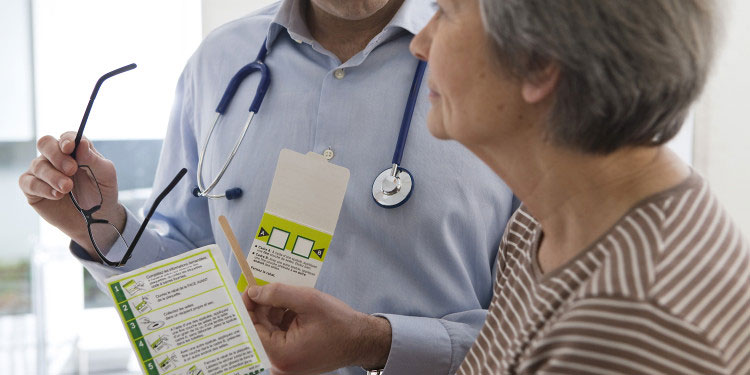Colorectal screening guidelines
Our cancer experts recommend colorectal cancer screening starting at age 45 and continuing until age 75 for those with an average risk. If you are at an increased risk for colorectal cancer, start screening at age 40 or as recommended by your doctor.
You’re at an increased risk of colorectal cancer if you have:
-
Family history of colorectal cancer, colorectal polyps or certain inherited diseases
- History of colorectal polyps
- Had radiation therapy to your abdomen or pelvic region
- Inflammatory bowel disease (Crohn’s disease or ulcerative colitis)
Colorectal cancer screening options
At Henry Ford, we recommend the screening test that’s right for your age, health and risk level. While a colonoscopy is the most common colorectal cancer screening test, it may not be right for everyone. Our personalized approach means you always receive the best test for your needs.
The two main types of colorectal cancer screening tests are:
- Stool-based tests: Stool tests for colon cancer check for hidden blood in your stool or cells with abnormal DNA changes. Stool tests, such as Cologuard®, are usually at-home tests. You collect a stool sample and send it to the lab. If you get an abnormal result from a stool test, you’ll need a visual exam such as a colonoscopy. Stool tests might be appropriate for people not healthy enough for a colonoscopy.
- Visual tests: Visual tests, such as a colonoscopy or flexible sigmoidoscopy, examine your colon and rectum. Your doctor inserts a scope (flexible tube) into your anus to look for polyps. A virtual colonoscopy uses X-rays and CT scans instead of a scope to examine your large intestine. You may get a virtual colonoscopy if you can’t have the sedation necessary for a standard colonoscopy.
Colonoscopy versus at-home colon cancer tests
Many people wonder about the differences between a colonoscopy and an at-home colorectal cancer test. At-home tests are less invasive and more convenient, but they’re less accurate than colonoscopies. You also need at-home testing more often (every one to three years), while you only need a colonoscopy every 10 years if you’re at an average risk. Learn more about at-home alternatives to colonoscopy.
.svg?iar=0&hash=F6049510E33E4E6D8196C26CCC0A64A4)

/hfh-logo-main--white.svg?iar=0&hash=ED491CBFADFB7670FAE94559C98D7798)



